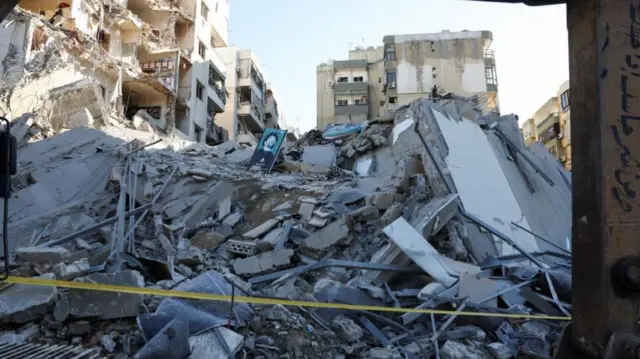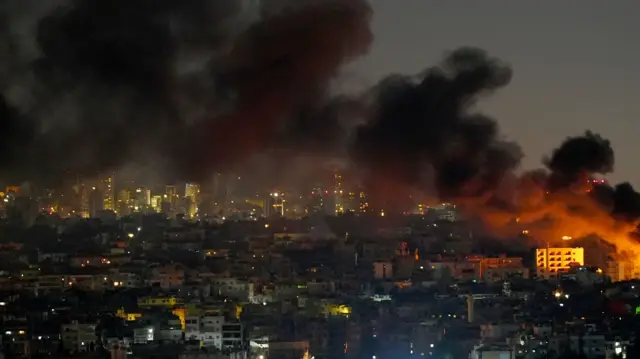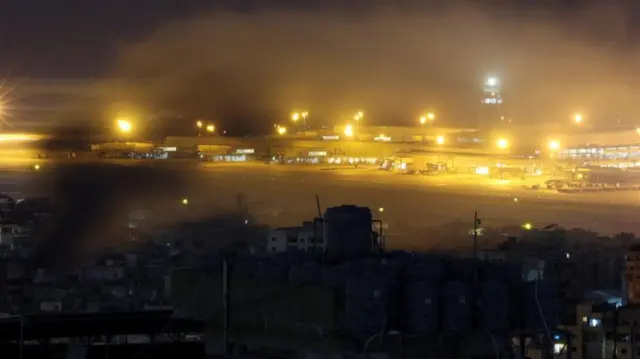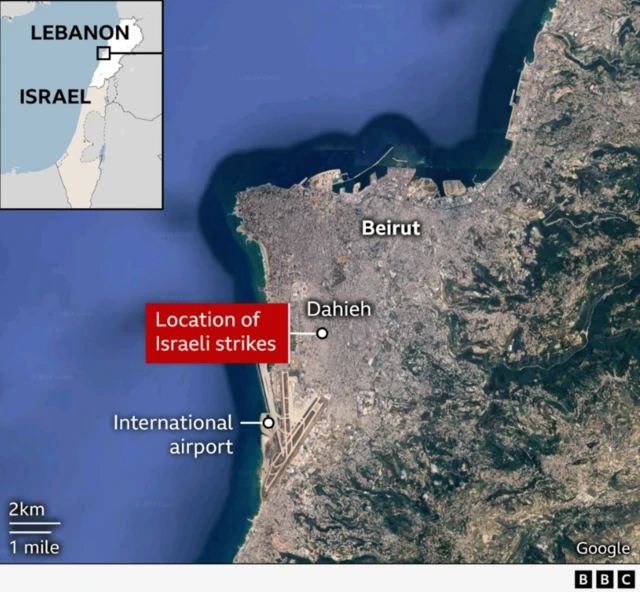What is Al-Qard al-Hassan, the bank being hit by Israel?published at 07:01 BST 21 October 2024
The Israeli military says it hit "dozens" of buildings that housed branches of Al-Qard al-Hassan (AQAH) - a bank which they say is used by Hezbollah.
Set up in 1982 as a charitable foundation, the lender was officially registered in 1987 - its name means "The Good Loan" or "The Benevolent Loan".
AQAH was sanctioned by the US Department of the Treasury in 2007, due to alleged ties with Hezbollah. The US says it serves as a critical financial network for the group.
It operates outside traditional Western systems, allowing Lebanese people to get around restrictions imposed by local banks.
There are 34 branches for AQAH across Lebanon. As we've reported, Lebanese media say there have been at least 16 airstrikes on buildings with AQAH branches - most of them in southern Beirut.
 Image source, Reuters
Image source, ReutersA building in Beirut that was hit by Israeli strikes overnight



